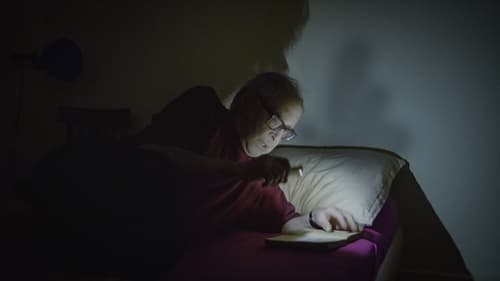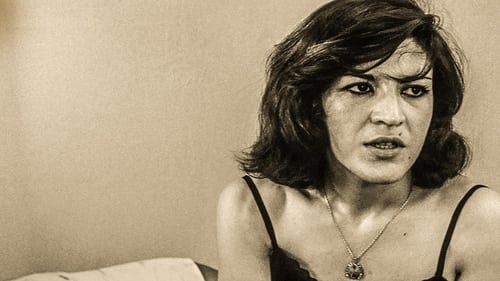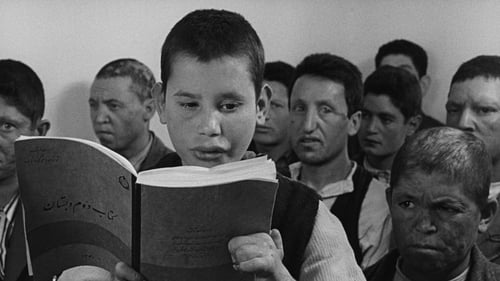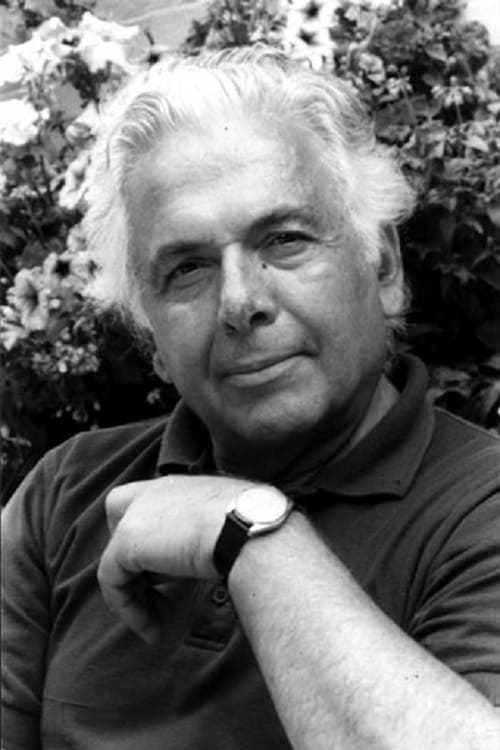Ebrahim Golestan
出生 : 1922-10-19, Shiraz, Iran
略歴
Ebrahim Golestan (Taghavi Shirazi) (also spelt Ibrahim Golestan, Persian: ابراهیم گلستان), (born October 19, 1922 in Shiraz, Iran) is an Iranian filmmaker and literary figure with a career spanning half a century. He has lived in Sussex, United Kingdom, since 1975.
He was closely associated with the controversial and eminent Iranian poet Forough Farrokhzad until her death, whom he met at his studio in 1958. He is said to have inspired her to live more independently.

Himself
"We should start with a correspondence, maybe we will not correspond to one another. Ebrahim can send me a letter this Friday, and I'll answer him next Friday. So, see you Friday, Robinson!" And so, Jean-Luc Godard stages himself in his daily thought, wisely desperate, and sends images and words from Switzerland to the other side of the Channel. In his mansion in Sussex, Ebrahim Golestan tries to decode these UFO-messages and skilfully seeks to bring them back to the appearance of reason. And so on, until the day a veil falls over the two Gods on the run. Does the existence of poets still have any meaning in these times of distress?

Self
Scenes from A Separation

Himself
This documentary that its filming has taken 10 years long, has shows a new picture of Ebrahim Golestan, Iranian filmmaker and literary figure of the 20th century.

Cinematography
A satirical comedy about a poor farmer who, while plowing his field, accidentally uncovers an ancient burial chamber loaded with gold artifacts. Realizing that the trove would somehow liberate him from his bumpkin existence, he brings pieces of it to a jeweler in the city.

Producer
A satirical comedy about a poor farmer who, while plowing his field, accidentally uncovers an ancient burial chamber loaded with gold artifacts. Realizing that the trove would somehow liberate him from his bumpkin existence, he brings pieces of it to a jeweler in the city.

Editor
A satirical comedy about a poor farmer who, while plowing his field, accidentally uncovers an ancient burial chamber loaded with gold artifacts. Realizing that the trove would somehow liberate him from his bumpkin existence, he brings pieces of it to a jeweler in the city.

Writer
A satirical comedy about a poor farmer who, while plowing his field, accidentally uncovers an ancient burial chamber loaded with gold artifacts. Realizing that the trove would somehow liberate him from his bumpkin existence, he brings pieces of it to a jeweler in the city.

Narrator (voice)
A satirical comedy about a poor farmer who, while plowing his field, accidentally uncovers an ancient burial chamber loaded with gold artifacts. Realizing that the trove would somehow liberate him from his bumpkin existence, he brings pieces of it to a jeweler in the city.

Director
A satirical comedy about a poor farmer who, while plowing his field, accidentally uncovers an ancient burial chamber loaded with gold artifacts. Realizing that the trove would somehow liberate him from his bumpkin existence, he brings pieces of it to a jeweler in the city.

Writer
A documentary on Hajj pilgrimage.

Director
Short documentary by Ebrahim Golestan

Voice on the radio (uncredited)
Hashem is a cab driver who finds an infant child in the back seat of his cab one night after he gives a ride to a young woman. Hashem and his girlfriend, Taji, try to cope with this unwanted child. Hashem insists on getting rid of the child, Taji on keeping him.

Editor
Hashem is a cab driver who finds an infant child in the back seat of his cab one night after he gives a ride to a young woman. Hashem and his girlfriend, Taji, try to cope with this unwanted child. Hashem insists on getting rid of the child, Taji on keeping him.

Producer
Hashem is a cab driver who finds an infant child in the back seat of his cab one night after he gives a ride to a young woman. Hashem and his girlfriend, Taji, try to cope with this unwanted child. Hashem insists on getting rid of the child, Taji on keeping him.

Writer
Hashem is a cab driver who finds an infant child in the back seat of his cab one night after he gives a ride to a young woman. Hashem and his girlfriend, Taji, try to cope with this unwanted child. Hashem insists on getting rid of the child, Taji on keeping him.

Director
Hashem is a cab driver who finds an infant child in the back seat of his cab one night after he gives a ride to a young woman. Hashem and his girlfriend, Taji, try to cope with this unwanted child. Hashem insists on getting rid of the child, Taji on keeping him.

Director
About Socio-economic conditions of countryside of Iran in 1960s.
This film recorded in village in south of fars, Shiraz, Esmaeel abad

Writer
About Socio-economic conditions of countryside of Iran in 1960s.
This film recorded in village in south of fars, Shiraz, Esmaeel abad

Director
About Socio-economic conditions of countryside of Iran in 1960s.
This film recorded in village in south of fars, Shiraz, Esmaeel abad

Narrator (voice)
The Crown Jewels of Iran is a 1965 film commissioned and then banned by the Shah’s cultural ministry, featuring dazzling edits and camera movements and a charged narration assaulting economic disparities.

Writer
The Crown Jewels of Iran is a 1965 film commissioned and then banned by the Shah’s cultural ministry, featuring dazzling edits and camera movements and a charged narration assaulting economic disparities.

Director
The Crown Jewels of Iran is a 1965 film commissioned and then banned by the Shah’s cultural ministry, featuring dazzling edits and camera movements and a charged narration assaulting economic disparities.

Narrator (voice)
This is a short documentary about Marlik hills and the archaeology's explorations there. But also it is about life, art, and the hope for a better tomorrow.

Writer
This is a short documentary about Marlik hills and the archaeology's explorations there. But also it is about life, art, and the hope for a better tomorrow.

Director
This is a short documentary about Marlik hills and the archaeology's explorations there. But also it is about life, art, and the hope for a better tomorrow.

Narrator (voice) (uncredited)
Set in a leper colony in the north of Iran, The House is Black juxtaposes "ugliness," of which there is much in the world as stated in the opening scenes, with religion and gratitude.

Producer
Set in a leper colony in the north of Iran, The House is Black juxtaposes "ugliness," of which there is much in the world as stated in the opening scenes, with religion and gratitude.

Writer
A documentary about the oil pipe installation in Khark, Iran in 1962.

Voice (Persian Version)
A documentary about the oil pipe installation in Khark, Iran in 1962.

Director
A documentary about the oil pipe installation in Khark, Iran in 1962.

Director
Abadan, in the vastness of the oil areas of southern Iran...

Director
The National Iranian Oil Company (NIOC), formed upon nationalization of the British Anglo-Iranian Oil Company, employed film systematically, producing many films on oil and petrochemical subjects. It also made films depicting Iran's progress and modernization, highlighting the role of the Shah and NIOC in that direction. Under its auspices, Ebrahim Golestan directed A FIRE (1961), a highly visual treatment of a seventy-day oil well fire in the Khuzestan region of southwestern Iran. This film was edited by the Iranian poet Forough Farrokhzad and won two awards at the Venice Film Festival in 1961.

Director
A discussion of the rites of betrothal in four separate countries.





